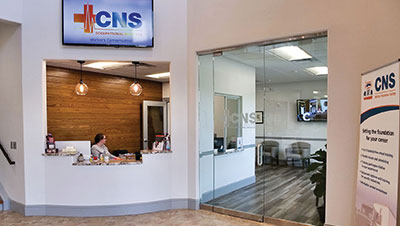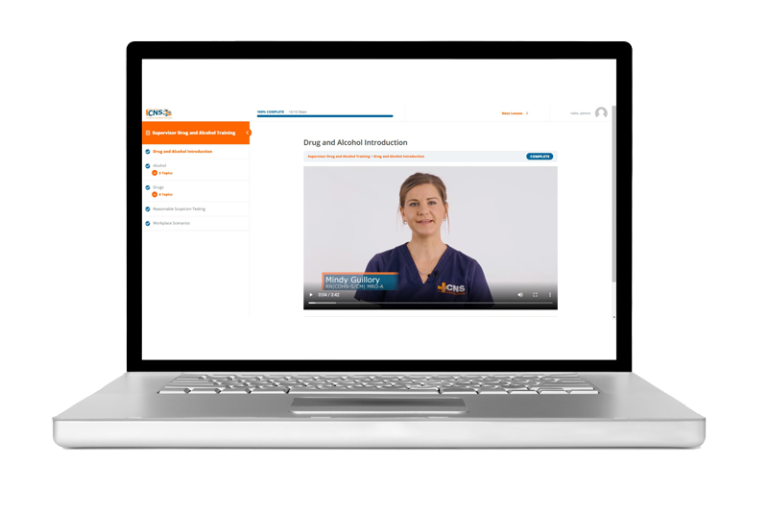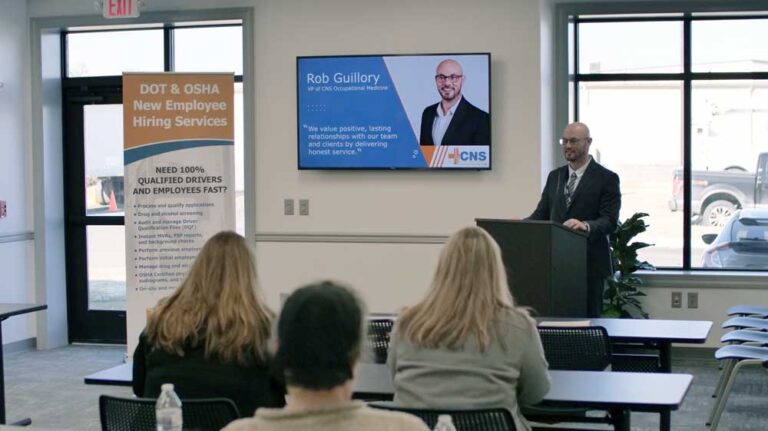The January 2024 edition of the Medical Examiner’s Handbook replaces all previous handbook editions.
Overview:
- Vision Waiver Study
- Privacy Protections
- Second Opinions
- Incomplete Exams
- Alternative Vision Standard
- Sleep Apnea
- Drug Testing
In 2022, FMCSA proposed changes to the draft Medical Examiner’s Handbook (MEH) and allowed comments on the draft handbook for driver physical exam qualifications.
After finally reviewing the comments, on Jan 22, 2024, FMCSA published an updated Medical Examiner’s Handbook (MEH).
This handbook provides information about regulatory requirements and guidance to medical examiners (ME) who perform physical qualification examinations for interstate commercial motor vehicle (CMV) drivers.
So, what has changed regarding driver medical qualification? Let’s take a look.
FMCSA’s Vision Waiver Study Program
The Agency notes that the updated MEH reflects the fact that medical certification under 49 CFR 391.64 for certain drivers who participated in FMCSA’s Vision Waiver Study Program is no longer available.
On January 21, 2022, FMCSA published a new alternative vision standard and eliminated physical qualification under § 391.64 (87 FR 3390).
As of March 22, 2023, all Medical Examiner’s Certificates, Form MCSA-5876, issued under § 391.64 became void. FMCSA is aware that references to medical certification under § 391.64 exist in FMCSA’s current regulations and forms.
Privacy Protections for the individuals being examined
Based on comments from ACOEM and an individual, FMCSA edited several sections to emphasize privacy protections for the individuals being examined, particularly that the right to receive a copy of the Medical Examination Report Form, MCSA-5875, is personal to the individual and does not depend on who paid for or requested the physical qualification examination.
In response to a comment from OOIDA, FMCSA also clarified when the individual’s consent is required for the ME and the employer to request and receive protected health information about the individual being examined.
Second Opinion by another Medical Examiner
FMCSA incorporated a suggestion from OOIDA to add that individuals may request a second opinion and physical qualification examination from another ME if they choose but are expected to provide the same medical information to both MEs.
In response to comments from an individual and ACOEM, FMCSA also stated that MEs should visualize the body while examining an individual and conduct an inguinal hernia examination for all males.
Incomplete Physical Examinations
ACOEM asked FMCSA to clarify issues regarding incomplete examinations, and the MEH now states that once an ME begins an examination, the results must be reported to the National Registry even if the examination is not completed.
At the request of ACOEM and two MEs, FMCSA clarified issues relating to the use of the “determination pending status”, including that it does not extend the expiration date of an individual’s current Medical Examiner’s Certificate, Form MCSA-5876.
One commenter, who is both an ME and a commercial driver’s license holder, noted that some MEs do not use the most current versions of forms, so FMCSA clarified that using the current form is mandatory.
Alternative Vision Standard
FMCSA clarified that the alternative vision standard is applicable only if the worse eye cannot be corrected to meet the distant visual acuity standard with corrective lenses.
FMCSA added that if the individual meets the vision standard while wearing corrective lenses, it is not necessary to document the distant visual acuity without corrective lenses.
FMCSA also added that when it is indicated that a medical exemption is required, the Medical Examiner’s Certificate, Form MCSA-5876, is not valid unless the individual applies for and is issued the medical exemption from FMCSA.
It was emphasized that MEs may certify an individual for less than the maximum period whenever they determine they need to monitor the individual more frequently.
Obstructive Sleep Apnea (OSA)
FMCSA deleted the references to obstructive sleep apnea (OSA) and added that the conditions should be diagnosed with an overnight lab-based sleep study followed by a Multiple Sleep Latency Test the next morning.
The FMCSRs do not include requirements for MEs to screen CMV drivers for OSA or provide requirements regarding whether to refer a driver for OSA testing. The FMCSRs also do not include preferred diagnostic testing methods, preferred treatment methods, or requirements by which to assess compliance for OSA treatment.
Drug and Alcohol Testing Services
CNS Occupational Medicine also offers a comprehensive Drug and Alcohol Consortium Service and are a certified consortium and third-party administrator (C/TPA).
Our experts ensure that all DOT rules and regulations are followed, including the implementation of random drug tests for you and your drivers, updating your company drug testing policies, record retention and document purge management.
We take all the necessary steps and precautions to keep you and your drivers compliant with the DOT drug and alcohol testing requirements.
For more information, contact us at 800.551.9816 or info@cnsoccmed.com.










